
- This event has passed.
KT Canada Scientific Meeting 2023
2023 KT Canada Scientific Meeting
KT Canada is pleased to be co-hosting this year’s meeting with the School of Epidemiology and Public Health at the University of Ottawa.
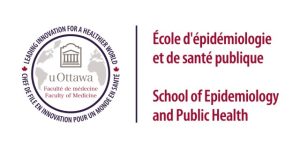
- Conference Information
- Guest Speakers
- Registration and Hotel Booking
- Agenda
- Program
- Info for abstract presenters
The 2023 KT Canada Annual Scientific Meeting is being held on May 11-12, 2023 in Ottawa, Canada in a hybrid format.
Abstract submission is now closed.
Registration will be opening soon – information will be posted under the “Registration” tab.
Further updates will be posted here, on our Twitter account (@KTCanada) and in the KT Canada weekly newsletter.
For questions please contact Meghan.Storey@UnityHealth.to.
Meet with a KT Expert at the KT Canada-SEPH Scientific Meeting
In-person attendees of the KT Canada-SEPH Scientific Meeting have the opportunity to request a one-on-one, 20-minute meeting with a KT expert to discuss a specific question or topic related to their work and research. We refer to these as “KT consults”.
The KT consult spaces are limited and we will do our best to set up a meeting for you with the expert of your choice (although we cannot guarantee it).
The online request form will go live, at the following link, on Thursday, April 27th at 12:00pm EST: https://knowledgetranslation.qualtrics.com/jfe/form/SV_6ROjvq3DIFOSvky
The request form will close at 11:59pm EST on Weds, May 3rd.
Please note that you must be registered to attend the meeting in-person in order for your request to be considered. We recommend completing your request form sooner than later in order improve your chance of meeting with your top choice.
How does the process work?
-We will aim to grant the first choice of each request as they come in, and as spots are available. -If your first choice is no longer available when you make your request, we will try to give you your second choice (and so on). -We will try to give as many people as possible at least one of their requests (but it may not be possible in every case).
The KT Consults will take place in-person at the Scientific Meeting, from 4:15-5:15pm ET on Thursday, May 11th. We will contact you once the online form closes to let you know the results of your request.
We have confirmed the following KT experts for the consult sessions: Dr. Jamie Brehaut Dr. Melissa Brouwers Dr. Ian Graham Dr. Dawn Stacey Dr. Sharon Straus
Requests will close at 11:59pm EST on Weds, May 3rd and we will be in touch with everyone afterwards.
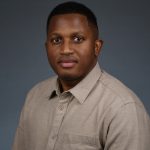 Clayon Hamilton, PhD is a health services researcher by training, Dr. Hamilton takes an evidence-informed and partnership approach to leadership in healthcare. After obtaining a PhD in Health and Rehabilitation Sciences at Western University, he completed postdoctoral training in health services and knowledge translation at the University of British Columbia. He supported evaluation within the primary care sector at the BC Ministry of Health as a CIHR-MSFHR Health System Impact Fellow, and held leadership roles in the provincial community-based mental health and substance use sector and the long-term care sector in BC’s largest regional health authority. Currently, Dr. Hamilton is a Knowledge Exchange Lead at BC Mental Health and Substance Use Services, a program within the Provincial Health Services Authority.
Clayon Hamilton, PhD is a health services researcher by training, Dr. Hamilton takes an evidence-informed and partnership approach to leadership in healthcare. After obtaining a PhD in Health and Rehabilitation Sciences at Western University, he completed postdoctoral training in health services and knowledge translation at the University of British Columbia. He supported evaluation within the primary care sector at the BC Ministry of Health as a CIHR-MSFHR Health System Impact Fellow, and held leadership roles in the provincial community-based mental health and substance use sector and the long-term care sector in BC’s largest regional health authority. Currently, Dr. Hamilton is a Knowledge Exchange Lead at BC Mental Health and Substance Use Services, a program within the Provincial Health Services Authority.
In addition, he holds adjunct faculty appointments from both the University of British Columbia, where he teaches a research course to medical students, and Simon Fraser University, where he teaches a certificate course on evaluating engagement. Passionate about meaningful partnerships, Dr. Hamilton’s work embraces the principles of meaningful engagement, and he leads projects to support patient engagement in research and healthcare system decision-making. His work has contributed evidence-based tools to support the practice and evaluation of patient engagement, including, notably, the validated Patient Engagement In Research Scale (PEIRS), a significant resource for evaluating patient and family engagement in research. Dr. Hamilton has received several highly competitive awards and grants and co-authored over 20 peer-reviewed articles. In his spare time, he enjoys going for runs with his family.
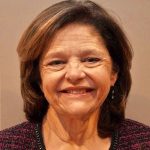 Maureen Smith has a long history of collaboration with the healthcare system subsequent to a rare disease diagnosis in childhood. She is the chair of Cochrane’s Consumer Network Executive and commissioner on the Global Commission on Evidence to Address Societal Challenges. Maureen is currently involved in three studies that use the integrated knowledge translation (iKT) approach and participated in a systematic review on decision coaching that was her introduction to iKT. As Chair of Ontario’s Strategy for Patient Oriented Research SUPPORT Unit’s Patient Partner Working Group and Board Member, she has a keen interest in co-production and knowledge translation.
Maureen Smith has a long history of collaboration with the healthcare system subsequent to a rare disease diagnosis in childhood. She is the chair of Cochrane’s Consumer Network Executive and commissioner on the Global Commission on Evidence to Address Societal Challenges. Maureen is currently involved in three studies that use the integrated knowledge translation (iKT) approach and participated in a systematic review on decision coaching that was her introduction to iKT. As Chair of Ontario’s Strategy for Patient Oriented Research SUPPORT Unit’s Patient Partner Working Group and Board Member, she has a keen interest in co-production and knowledge translation.
 Dr. Richard Oster is the Scientific Director of the Indigenous Wellness Core of Alberta Health Services, based out of Edmonton, Alberta, Canada. Richard is also an Adjunct Assistant Professor in the Department of Agricultural, Food & Nutritional Sciences (University of Alberta) and in the Department of Community Health Sciences
(University of Calgary.). His research takes a strengths-based and partnership approach, building specifically on Indigenous ways of knowing and the resilience and abundance within communities, as opposed to using a deficit-focused western lens which tends to dominate the field.
Dr. Richard Oster is the Scientific Director of the Indigenous Wellness Core of Alberta Health Services, based out of Edmonton, Alberta, Canada. Richard is also an Adjunct Assistant Professor in the Department of Agricultural, Food & Nutritional Sciences (University of Alberta) and in the Department of Community Health Sciences
(University of Calgary.). His research takes a strengths-based and partnership approach, building specifically on Indigenous ways of knowing and the resilience and abundance within communities, as opposed to using a deficit-focused western lens which tends to dominate the field.
 Dr. Marcia Anderson is Cree-Anishinaabe and grew up in the North End of Winnipeg. Her family roots go to
Peguis First Nation and Norway House Cree Nation in Manitoba. She practices both Internal Medicine and
Public Health as a Medical Officer of Health with Indigenous Services Canada- Manitoba Region. She is the
Vice-Dean, Indigenous Health, Social Justice and Anti-Racism and the Executive Director of Indigenous
Academic Affairs in the Ongomiizwin Indigenous Institute of Health and Healing, Rady Faculty of Health
Sciences, University of Manitoba. She serves as the Chair of the Indigenous Health Network of the
Association of Faculties of Medicine of Canada and the Chair of the National Consortium for Indigenous
Medical Education. She was recognized for her contributions to Indigenous Peoples health with a National
Aboriginal Achievement Award in March 2011. In 2018 she was named one of the 100 most powerful women
in Canada by the Women’s Executive Network. In 2021 she received the Royal College of Physicians and
Surgeons Dr. Thomas Dignan Indigenous Health Award, and in 2022 was named the Doctors Manitoba
Physician of the Year.
Dr. Marcia Anderson is Cree-Anishinaabe and grew up in the North End of Winnipeg. Her family roots go to
Peguis First Nation and Norway House Cree Nation in Manitoba. She practices both Internal Medicine and
Public Health as a Medical Officer of Health with Indigenous Services Canada- Manitoba Region. She is the
Vice-Dean, Indigenous Health, Social Justice and Anti-Racism and the Executive Director of Indigenous
Academic Affairs in the Ongomiizwin Indigenous Institute of Health and Healing, Rady Faculty of Health
Sciences, University of Manitoba. She serves as the Chair of the Indigenous Health Network of the
Association of Faculties of Medicine of Canada and the Chair of the National Consortium for Indigenous
Medical Education. She was recognized for her contributions to Indigenous Peoples health with a National
Aboriginal Achievement Award in March 2011. In 2018 she was named one of the 100 most powerful women
in Canada by the Women’s Executive Network. In 2021 she received the Royal College of Physicians and
Surgeons Dr. Thomas Dignan Indigenous Health Award, and in 2022 was named the Doctors Manitoba
Physician of the Year.
 Dr. Katrina Plamondon is an RN and Assistant Professor and Michael Smith Health Research BC Scholar at the School of Nursing at the University of British Columbia Okanagan. Her work as an equity scholar is grounded in critical anti-oppressive pedagogy and relational theory and practices. Her research focuses on critical questions about how to facilitate integration of equity-centred principles and practices across sectors and settings, equipping people to engage in practices, partnerships, policy and society in ways that contribute to more equitable futures. She plays a national leadership role in advancing health equity.
Dr. Katrina Plamondon is an RN and Assistant Professor and Michael Smith Health Research BC Scholar at the School of Nursing at the University of British Columbia Okanagan. Her work as an equity scholar is grounded in critical anti-oppressive pedagogy and relational theory and practices. Her research focuses on critical questions about how to facilitate integration of equity-centred principles and practices across sectors and settings, equipping people to engage in practices, partnerships, policy and society in ways that contribute to more equitable futures. She plays a national leadership role in advancing health equity.
 Priscille-Nice Sanon is a sickle cell survivor. She was diagnosed with Sickle Cell type SS at birth. Due to complication to this disease, she has received over 100 blood transfusion and a bone marrow transplant. She is involved in patient engagement and has a passion for health research. She graduated with a master degree in pharmaceutical science: pharmacoepidemiology from Université Laval. She was also involved with the Quebec SPOR unit as a patient coordinator for University Laval and collaborated on several research projects as a patient. Being a patient partner allowed her to put her passion for research and volunteering at work while being able to make a lasting impact on health research.
Priscille-Nice Sanon is a sickle cell survivor. She was diagnosed with Sickle Cell type SS at birth. Due to complication to this disease, she has received over 100 blood transfusion and a bone marrow transplant. She is involved in patient engagement and has a passion for health research. She graduated with a master degree in pharmaceutical science: pharmacoepidemiology from Université Laval. She was also involved with the Quebec SPOR unit as a patient coordinator for University Laval and collaborated on several research projects as a patient. Being a patient partner allowed her to put her passion for research and volunteering at work while being able to make a lasting impact on health research.
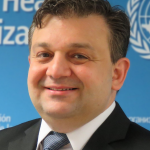 Garry Aslanyan: As Manager of Partnerships and Governance for the World Health Organization’s Special Programme for Research and Training in Tropical Diseases (TDR), Dr Garry Aslanyan is responsible for TDR’s wide range of engagements with global health stakeholders, including mobilizing programme resources and TDR’s governing bodies. TDR has a unique relationship with co-sponsors: UNICEF, World Bank, UNDP and WHO. This includes applying research evidence in global health programming of the co-sponsors and collaborating with six regional WHO offices which is overseen by Dr Aslanyan, including the highly successful impact grants tackling public health challenges in those regions. In addition, Dr Aslanyan is the Head of the ESSENCE on Health Research Secretariat that provides support to its Steering Committee and funding agencies which are members of ESSENCE to move forward on various activities.
Garry Aslanyan: As Manager of Partnerships and Governance for the World Health Organization’s Special Programme for Research and Training in Tropical Diseases (TDR), Dr Garry Aslanyan is responsible for TDR’s wide range of engagements with global health stakeholders, including mobilizing programme resources and TDR’s governing bodies. TDR has a unique relationship with co-sponsors: UNICEF, World Bank, UNDP and WHO. This includes applying research evidence in global health programming of the co-sponsors and collaborating with six regional WHO offices which is overseen by Dr Aslanyan, including the highly successful impact grants tackling public health challenges in those regions. In addition, Dr Aslanyan is the Head of the ESSENCE on Health Research Secretariat that provides support to its Steering Committee and funding agencies which are members of ESSENCE to move forward on various activities.
Garry is also the host of the highly popular Global Health Matters podcast and leads its production team.
Dr Aslanyan is Canadian, with a background in dentistry, public health, research/innovation management, health policy/systems as well as global health diplomacy. Prior to joining TDR, Dr Aslanyan has taken on various roles that allowed him to lead various organizational and technical innovations and is a recognized leader in global public health. As well as holding senior executive positions within Canada’s federal government and as the past President of the Ontario Public Health Association, Dr Garry Aslanyan has experiences living and working across the world including in Brazil, South Africa, Armenia, Barbados and Vietnam.
 Dr. Jamie Brehaut is a Senior Scientist with the Ottawa Hospital Research Institute, Full Professor in the School of Epidemiology & Public at the University of Ottawa, and member of the Centre for Implementation Science and the Ottawa Methods Centre. Dr. Brehaut holds a PhD in Cognitive Psychology from McMaster University. Trained in issues of human memory, attention, and cognition, Dr. Brehaut has expertise in knowledge translation and implementation, psychological theory, judgement and decision making, decision support, and issues in caregiver health. Much of his work focuses on the application of psychological theory to facilitate health care practice change and ethical issues in health care decision making. His work involves a wide range of clinical disciplines (e.g. emergency medicine, critical care, oncology, lab medicine, public health).
Dr. Jamie Brehaut is a Senior Scientist with the Ottawa Hospital Research Institute, Full Professor in the School of Epidemiology & Public at the University of Ottawa, and member of the Centre for Implementation Science and the Ottawa Methods Centre. Dr. Brehaut holds a PhD in Cognitive Psychology from McMaster University. Trained in issues of human memory, attention, and cognition, Dr. Brehaut has expertise in knowledge translation and implementation, psychological theory, judgement and decision making, decision support, and issues in caregiver health. Much of his work focuses on the application of psychological theory to facilitate health care practice change and ethical issues in health care decision making. His work involves a wide range of clinical disciplines (e.g. emergency medicine, critical care, oncology, lab medicine, public health).
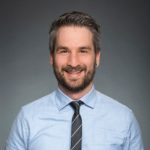 Dr. Presseau is a Senior Scientist at the Ottawa Hospital Research Institute and Associate Professor in the School of Epidemiology & Public Health and School of Psychology at the University of Ottawa. As a behavioural scientist, he leads the Psychology and Health Research Group (PaHRG) and is a core faculty member of the Centre for Implementation Research at the Ottawa Hospital. He holds a Ph.D. in Psychology from the University of Aberdeen (UK). His research program operates at the intersection between behavioural science and implementation science, focusing on developing and evaluate interventions to support changing healthcare professional behaviours and health behaviours of patients and the public.
Dr. Presseau is a Senior Scientist at the Ottawa Hospital Research Institute and Associate Professor in the School of Epidemiology & Public Health and School of Psychology at the University of Ottawa. As a behavioural scientist, he leads the Psychology and Health Research Group (PaHRG) and is a core faculty member of the Centre for Implementation Research at the Ottawa Hospital. He holds a Ph.D. in Psychology from the University of Aberdeen (UK). His research program operates at the intersection between behavioural science and implementation science, focusing on developing and evaluate interventions to support changing healthcare professional behaviours and health behaviours of patients and the public.
 Dr. Elton-Marshall is an Associate Professor in the School of Epidemiology and Public Health at the University of Ottawa. Her research evaluates addiction and substance use-related policies and programs with the goal of providing the evidence needed to strengthen future policy and programming, and ultimately reducing addiction and substance use problems. She is currently the Nominated Principal Investigator (NPI) on a CIHR funded team grant to evaluate the impact of cannabis policy in Ontario.
Dr. Elton-Marshall is an Associate Professor in the School of Epidemiology and Public Health at the University of Ottawa. Her research evaluates addiction and substance use-related policies and programs with the goal of providing the evidence needed to strengthen future policy and programming, and ultimately reducing addiction and substance use problems. She is currently the Nominated Principal Investigator (NPI) on a CIHR funded team grant to evaluate the impact of cannabis policy in Ontario.
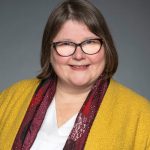 Dr. Melissa Brouwers is a Professor and the Director of the School of Epidemiology and Public Health (SEPH) in the Faculty of Medicine at University of Ottawa. She also holds appointments at McMaster University in the Department of Oncology and the Department of Health Research Methods, Evidence and Impact (HEI). At SEPH, Dr. Brouwers is a co-leader of the Knowledge Synthesis and Application Unit (https://www.ksau.ca/) and a co-lead of the AGREE Research Enterprise (www.agreetrust.com). Dr. Brouwers holds a wealth of experience as a health services researcher with special interest in knowledge translation, implementation science and evaluation, and knowledge synthesis and guidelines. She has a passion for graduate school education and international research collaborations. She obtained her PhD in Social Psychology from Western University.
Dr. Melissa Brouwers is a Professor and the Director of the School of Epidemiology and Public Health (SEPH) in the Faculty of Medicine at University of Ottawa. She also holds appointments at McMaster University in the Department of Oncology and the Department of Health Research Methods, Evidence and Impact (HEI). At SEPH, Dr. Brouwers is a co-leader of the Knowledge Synthesis and Application Unit (https://www.ksau.ca/) and a co-lead of the AGREE Research Enterprise (www.agreetrust.com). Dr. Brouwers holds a wealth of experience as a health services researcher with special interest in knowledge translation, implementation science and evaluation, and knowledge synthesis and guidelines. She has a passion for graduate school education and international research collaborations. She obtained her PhD in Social Psychology from Western University.
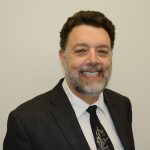 Dr. Brent Moloughney is the Deputy Medical Officer of Health at Ottawa Public Health where he leads a team of Associate Medical Officers of Health that proactively provides medical expertise and strengthens capacity for innovation and quality across the organization’s programs and services.
Brent is a public health and preventive medicine specialist with over 25 years of experience at regional, provincial and national levels. For 18 of those years, he was an independent consultant working with public health organizations across the country. Prior to his return to Ottawa in early 2020, Brent was based at Public Health Ontario where he was a Medical Director and then Interim Chief of the Department of Health Promotion, Chronic Disease and Injury Prevention. Brent has clinical faculty positions at the University of Toronto and the University of Ottawa.
Dr. Brent Moloughney is the Deputy Medical Officer of Health at Ottawa Public Health where he leads a team of Associate Medical Officers of Health that proactively provides medical expertise and strengthens capacity for innovation and quality across the organization’s programs and services.
Brent is a public health and preventive medicine specialist with over 25 years of experience at regional, provincial and national levels. For 18 of those years, he was an independent consultant working with public health organizations across the country. Prior to his return to Ottawa in early 2020, Brent was based at Public Health Ontario where he was a Medical Director and then Interim Chief of the Department of Health Promotion, Chronic Disease and Injury Prevention. Brent has clinical faculty positions at the University of Toronto and the University of Ottawa.
 Dr. Sameera Hussain is a global health policy expert working at the intersection of academia, policy, and practice. Her current work is focussed on transformation in the post-COVID19 context using systems approaches for effective, evidence-based policy-making. She works at the Public Health Agency of Canada, advancing strategic priorities for public health renewal. She is passionate about knowledge mobilization to bridge the evidence to policy gap in health systems. Dr. Hussain operates through a lens of intersectional feminism and social justice, and is committed to the mentorship of early-career women scholars from racialized communities/global South who are working in health policy and systems research. She maintains an active research agenda around health equity, the Sustainable Development Goals (SDGs), structural determinants of health, and whole-of-government approaches to health and well-being.
Dr. Sameera Hussain is a global health policy expert working at the intersection of academia, policy, and practice. Her current work is focussed on transformation in the post-COVID19 context using systems approaches for effective, evidence-based policy-making. She works at the Public Health Agency of Canada, advancing strategic priorities for public health renewal. She is passionate about knowledge mobilization to bridge the evidence to policy gap in health systems. Dr. Hussain operates through a lens of intersectional feminism and social justice, and is committed to the mentorship of early-career women scholars from racialized communities/global South who are working in health policy and systems research. She maintains an active research agenda around health equity, the Sustainable Development Goals (SDGs), structural determinants of health, and whole-of-government approaches to health and well-being.
Dr. Hussain holds a doctorate in global public health and degrees in political and development studies. She serves on the editorial board of BMC’s Globalization and Health Journal, where she recently spearheaded a special journal issue on health intersectoralism in the SDG era. She was recognized in 2020 on the Canadian Women in Global Health list.
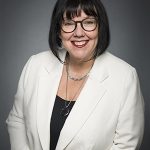 Dr Lynne Leonard is a social epidemiologist and Associate Professor and Research Scientist in the School of Epidemiology and Public Health.
Dr Lynne Leonard is a social epidemiologist and Associate Professor and Research Scientist in the School of Epidemiology and Public Health.
A social scientist by training, Dr Leonard is particularly interested in the social determinants of health and in conducting community-based research to effect policy and programme change at the community, provincial and national level. She obtained her PhD in social policy and epidemiology and biostatistics from McGill University focusing her work in the area of HIV prevention.
An active research investigator in the HIV/AIDS field for many years, as Principal Investigator Dr Leonard has directed several collaborative studies in HIV prevention research at the national, provincial and local level. In Ottawa, her HIV prevention research began some thirteen years ago with the community evaluation of the Site Needle Exchange Programme and has continued to focus on working with women at higher risk of HIV and with women and men who inject drugs. She has directed the Ottawa site of the interprovincial SurvIDU project for over six years. The widely disseminated results of this study have generated substantial programme and policy developments in response to the documented situation of an extremely high level of HIV infection among Ottawa injection drug users.
Dr Leonard is currently Principal Investigator of two community-based cohort studies employing both qualitative and quantitative methods, to more fully understand, from the perspectives of injection drug users themselves, the individual and structural factors contributing to the unacceptably high level of HIV and HCV infection among women and men in Ottawa who inject drugs. With the support of funding from the Canadian Institutes of Health Research and as Principal Investigator she will continue her work with this community to assess the need for a safer injection facility in Ottawa.
As a firm proponent of of the necessity to transfer research into programme and policy reformulation and development, Dr Leonard is a member of many national, provincial and local committees and advisory boards focusing on policy and programme development to reduce the harm associated with injection drug use and serves as a member and Chair on a range of national and provincial Scientific Review Boards including the Canadian Institutes of Health Research. She has been nominated to the Ontario Advisory Council on HIV/AIDS and to the Ontario Provincial Working Group on Hepatitis C – both groups provide advice and guidance to the Provincial Minister of Health who is a member of both groups.
Dr Leonard holds competitive research funding from the Canadian Institutes of Health Research, the Canadian Foundation for AIDS Research, the Community-based Research Programme of the Canadian Strategy on HIV/AIDS and is a research scholar of the Ontario HIV Treatment Network. In 2002, Dr Leonard received the New Investigator Award from the Canadian HIV/AIDS Research Association.
 Dr. Erin Cameron is an Associate Professor of Medical Education at the Northern Ontario School of Medicine University (NOSMU) in Thunder Bay, Canada. As a mid-career educational scientist, Dr. Cameron’s research focuses on social justice pedagogies and practices that support transformation of local education and health systems. With regional, provincial, and national funding, Dr. Cameron’s work is interdisciplinary with broad impact and a community focus. She has over 50 peer-reviewed publications, $4M funding; 140 conference presentations; and has worked with over 35 trainees.
Dr. Erin Cameron is an Associate Professor of Medical Education at the Northern Ontario School of Medicine University (NOSMU) in Thunder Bay, Canada. As a mid-career educational scientist, Dr. Cameron’s research focuses on social justice pedagogies and practices that support transformation of local education and health systems. With regional, provincial, and national funding, Dr. Cameron’s work is interdisciplinary with broad impact and a community focus. She has over 50 peer-reviewed publications, $4M funding; 140 conference presentations; and has worked with over 35 trainees.
In addition to an active research program, socially accountable leadership is at the heart of Dr. Cameron’s work. She is the inaugural Academic Director of the Centre for Social Accountability, a multidisciplinary centre at NOSM U dedicated to the improvement of health and wellness in Northern Ontario. The Centre is home to two research networks MERLIN (the Medical Education Research Lab in the North) and NORTHH (Northern Ontario Towards Health Hub), and the International Steering Committee on Accreditation and Social Accountability, a global think-tank for establishing standards around social accountability. Through strategic policy leadership and advocacy, research and innovation, and education, the Centre is quickly becoming a frontrunner in the improvement of sustainable equity, access, and population health outcomes. As a social accountability leader in Canada, Dr. Cameron is the Co-Chair of the Social Accountability Network within the Association of Faculties of Medicine in Canada (AFMC) and a member of the Standing Committee on Social Accountability in the AFMC.
Prior to joining NOSMU, she held a faculty appointment at Memorial University of Newfoundland and enjoyed a varied career as a professional athlete and journalist. Erin loves living in Northern Ontario and enjoys vibrant outdoor adventures with her partner and four young children.
 Michele Whiteduck is an Algonquin Anishinaabe Ikwe from Pikwakanagan First Nation.
Michele Whiteduck is an Algonquin Anishinaabe Ikwe from Pikwakanagan First Nation.
She graduated in 2014 from Lakehead University in Thunder bay ON from the Native Language Instructor’s Program. She is a certified Native language teacher and has worked in the education department for the Algonquins of Pikwakanagan first nation from 2009 to present date. Michele teaches Algonquin language and culture from kinder level to grade 8 in the elementary schools in Eganville ON. Michele has also facilitated adult Algonquin language classes, drumming and singing and moccassin making within her community and Algonquin College at the Pembroke site. She enjoys sewing, drumming and singing and taking part in traditional ceremonies. Michele is a mother to 6 children and a Grandmother to 14 Grandchildren, She is very Family oriented and enjoys spending time with family and building memories.
 Alison Bourgon has held various leadership positions during her twelve years at CIHR. In her current role, she oversees the breadth of CIHR’s science policies and strategies, including work in the areas of capacity development; ethics; equity, diversity and inclusion; health research data; knowledge translation; open science; and research excellence.
Alison Bourgon has held various leadership positions during her twelve years at CIHR. In her current role, she oversees the breadth of CIHR’s science policies and strategies, including work in the areas of capacity development; ethics; equity, diversity and inclusion; health research data; knowledge translation; open science; and research excellence.
Registration is now open for the 2023 KT Canada – SEPH Scientific Meeting!
CONFERENCE FEES
Regular: $800
Students & Fellows: $450
Online only: $235
Patients and Caregivers: Please contact Meghan directly: Meghan.Storey@UnityHealth.to
The deadline to register is Monday, May 8th.
Register HERE
Venue/ Hotel Information
You may book a room at the Delta Hotel by using this link.
Please note that you must use the above link in order to get the conference room rate.
You must book your room by April 11th in order to receive the conference room rate. If you run into any issues while making your reservation, please email Meghan.Storey@UnityHealth.to.
The KT Canada – SEPH Scientific Meeting is being held at the Delta Hotel at 101 Lyon St. North, Ottawa, on May 11-12, 2023.
Hotel website: click here Hotel Address: 101 Lyon St. North, Ottawa, Ontario Phone: +1 613-237-3600
Coming soon
Oral Presentations
Oral presenters will get 15 minutes total – this includes 10 minutes of presenting and 5 minutes of Q&A. If the presentation goes longer than 10 minutes, the Q&A will be shortened. Oral presenters should send their slides to Meghan Storey by May 1st.
Poster Presentations
- The poster board surface is 91” wide, and 45” tall.
- In terms of poster format – we do not have requirements, but we have included some resources below:
- How to create a better research poster in less time: https://www.youtube.com/watch?v=SYk29tnxASs
- Templates: https://www.youtube.com/watch?v=SYk29tnxASs
- Poster presenters will get 30 seconds to introduce their work to the full group. Please prepare 1 slide for this and send to Meghan Storey by May 1st. You can send the slide in PDF or PPT format. There will be 40 posters total.
